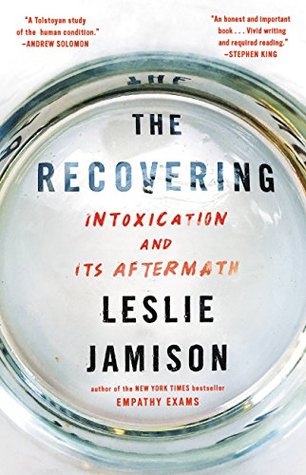More on this book
Community
Kindle Notes & Highlights
Her drinking has violated the central commandment of her gender, Thou shalt care for others, and revealed itself as an intrinsically selfish abnegation of that duty.
One problem with living as if your sadness takes up the whole world is that it never does—and the people who live beyond its borders often have needs of their own.
I drank myself toward zero gravity, what Hemingway called “rum-brave” and Lowry called “tequila-unafraid.”
In recovery, years later, when someone described self-loathing as the flip side of narcissism, I almost laughed out loud at the stark truth of what she’d said. This black-and-white thinking, this all-or-nothing, it was cut from the same cloth. Being just a man among men, or a woman among women, with nothing extraordinary about your flaws or your mistakes—that was the hardest thing to accept.
a quote from G. K. Chesterton: “How much larger your life would be if your self could become smaller in it. You would find yourself under a freer sky, in a street full of splendid strangers.”
When I first saw the Pattern Script, it seemed to crystallize everything that was troubling about recovery narratives, their cookie-cutter conventions and the tyranny of their triptych structure: what it was like (your drinking), what happened (why you stopped), what it’s like now (your sobriety).
It was exhausting to be around anyone, because I didn’t have much inside—much energy or interest—so I had to portion it carefully across the day. Talking took effort. What was there to talk about? My family thought I might be clinically depressed, which wasn’t particularly interesting to talk about either.
His life no longer ran on whiskey and ink but on caffeine and graphite, less godly fuels.
“You know what work does? It provides a constant. It structures time… I realize that a fix has to get done also and no two ways about it, but a fix goes in. To FIX. To adjust, to focus. But what I’m talking about goes out and in a choosy way rearranges reality.”
an anthology held together by earnestness? It’s one of the most apt descriptions of a recovery meeting—its particular beauty—that I’ve ever heard.
in a 1965 review in the New York Times, Charles Jackson had questioned the mythic figure of the “tormented” artist: “Are we really all that tormented? Or is it something we hang onto, foster, even cherish, till it becomes an end in itself, full of self-defeating interest?”
Gately describes the newly sober as “so desperate to escape their own interior” that they want “to lay responsibility for themselves at the feet of something as seductive and consuming as their former friend the Substance.”
They also recognized bullshit, and manipulation, and meaningless intellectualization as a way of evading terrible truths—and on many days the most helpful thing they did was to laugh at me and make fun of my dodges (which were, I realize now, pathetically easy for a fellow addict to spot), and to advise me just not to use chemicals today because tomorrow might very well look different. Advice like this sounds too simplistic to be helpful, but it was crucial.
It made me think of the calligraphy poster in Infinite Jest, hanging in the Ennet House bathroom: EVERYTHING I’VE EVER LET GO OF HAD CLAW MARKS ON IT.
This act of prayer, not simply praying for a stranger but for a stranger he loathes, is actually a specific part of AA teaching: If you have a resentment you want to be free of, if you will pray for the person or thing that you resent, you will be free.
The sober writer doesn’t always write a sober epic. The sober writer doesn’t always even stay sober. Charles Jackson eventually decided AA had “flatten[ed] him out,” and that it worked best “for the mindless”—that it had doomed him to
“years of a kind of grey, bleak, empty well-being” that made true creative work impossible, consigning him to “apathy, spiritlessness, blank sobriety, and a vegetable health.” Jackson decided he believed in the Faustian bargain after all, believed in the choice between sobriety and genius. “Should I say the hell with it and return to my former indulgence,” he wondered, “and thus be freed from my healthy prison, free once more from fear, able to function as a writer again?” After years of Möbius-strip sobriety—in and out, on and off—Jackson finally committed suicide by overdosing on Seconal in
...more
The rum, we understand, is little more than a poor substitute for an older magic. It grants some diluted version of the relief her nurse’s obeah once offered. Her core desire is for love. Booze is just meager consolation, a sham form of sustenance.


